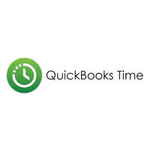Small Businesses to get cash and tax breaks in stimulus package
March 12, 2020
Coronavirus support package: cash payments and tax relief for small business
The Government has announced a $15 billion stimulus package targeted at giving an immediate boost to the economy and small business are the big winners.
- The instant asset writeoff will be raised from $30,000 to $150,000, and the threshold for access will be increased from $50 million to $500 million. For assets over the $150,000 theshhold, accelerated depreciation will apply.
- Small and medium businesses with employees will receive cash payments between $2,000 and $25,000 depending on the size of their payroll. Businesses will receive payments of 50 per cent of their Business Activity Statements or Instalment Activity Statement from 28 April with refunds to then be paid within 14 days.
- Small businesses with apprentices or trainees can apply for a wage subsidy of 50 per cent of their wage for up to 9 months from 1 January 2020 to 30 September 2020. Payments will be from 31 March 2020 on a progressive basis, with over 90 per cent of payments expected to be made by mid-April.
The package also includes one-off payments of $750 to pensioners, social security, veteran and other income support recipients and eligible concession card holders.
The Government is also offering administrative relief for certain tax obligations, including deferring tax payments up to four months for businesses directly affected by the coronavirus.
The bulk of the stimulus measures will need to be approved by the federal parliament, which next sits on March 23.
This stimulus plan follows the announcement of $2.4 billion for health measures to combat the coronavirus.















